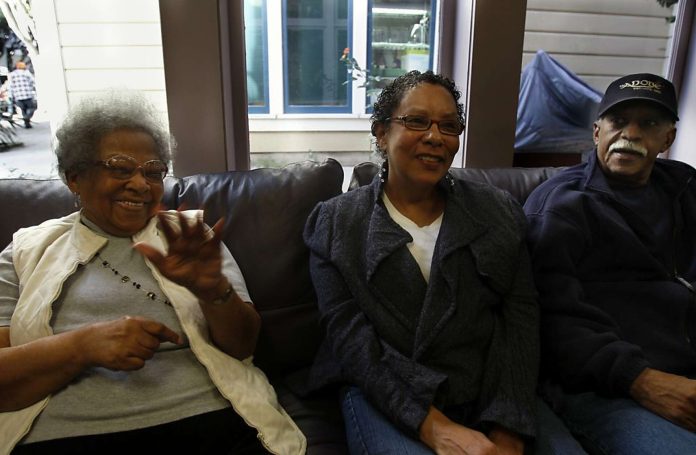Black-owned businesses are part of the American economic and cultural fabric. They have been growing in numbers and influence since the years. In this way, they create more jobs, empower communities, and promote innovation. However, after all these steps the number of Black-owned firms still only comprises a small percentage of the total number of United States businesses, and they face problems that other businesses do not. Black entrepreneurs still thrive and prosper, and contribute to the local community and economy in general.
In this article, we will focus on the most prominent Black-owned businesses in America, impact, challenges, and contributions to various industries.
Emergence and Expansion of Black-Owned Enterprises
Between the latest periods, records by the US Census Bureau and National Science Foundation captured high counts for Black-owned firms. A number of Black-owned businesses were reported to grow from 124, 004 from 2017 to 161,031 from the year 2021, consecutively. These have characterized significant growth in entrepreneurial activities
This was the same period where the number of Black-owned businesses accelerated saw revenues grow by 43% from 2017 to 2021, reaching $127.9 billion to $183.3 billion, thereby indicating that Black entrepreneurs have accrued increasingly powerful economic power and influence.
Despite these records, Black-owned businesses are far from equal. They only own 3% of classifiable US firms and account for a paltry 1% of the total gross revenues. More investment and support are warranted for the Black-owned businesses.
Also read: Top Black CEOs in Fortune 500: Leading Figures in 2024
Top Black-Owned Businesses in the United States
Some of the most influential and successful black-owned businesses that have spearheaded the transformation of respective industries, innovation, and upliftment of communities are named below.
1. Marcus Books
- Category: Books Store
- Location: Oakland, California
Marcus Books is one of the oldest African-American-owned bookstores in the United States. It has been a beacon for African-American literature and culture for over six decades since 1960.
The shop is specialized in literature by black authors who give voice to voices which have been marginalized for centuries. This shop sells a broad range of genres: history, fiction, poetry, and children’s books.
Among many powerful authors, and leading into this country by the Black race, Marcus Book is one of the venues that harbor it. Some of which brought economic issues more so as it survived as a point of enlightenment into African American literature.
2. SheaMoisture
- Category: Beauty and Personal Care
- Founder of SheMoisture: Richelieu Dennis
SheaMoisture is one of the biggest beauty companies specializing in natural hair and skincare products for Black women. It was established by Richelieu Dennis in 1991 with inspiration from African traditions and ingredients, such as shea butter.
SheaMoisture is not a product but represents empowerment and inclusivity. It caters to a gap in the market of natural beauty products that addresses textured hair and melanated skin.
The brand has also been giving back through initiatives like the Community Commerce Fund, which supports Black entrepreneurs and women-led businesses.
Also read: 20 New Year Resolutions For Entrepreneurs To Boost Your Business
3. Walker & Company Brands
- Category: Personal Care
- Walker & Company Brands;s Founder: Tristan Walker
Walker & Company Brands was founded in 2013. It provides personal care products for people of color. It has a flagship brand, Bevel, that revolutionized the ways Black men could groom themselves by solving exclusive issues like razor bumps and ingrown hairs.
Tristan Walker found out that the market did not have shaving products targeting coarse and curly hair. Bevel shaving systems and skincare products made the company very famous and put it in many major retailing stores.
Procter & Gamble acquired the brand Walker & Company in 2018 because it enabled the brand to take it to the global space in a respectful way and also to uphold the mission of serving black communities.
4. Harlem Capital Partners
- Category: Venture Capital
- Founders: Henri Pierre-Jacques and Jarrid Tingle
Harlem Capital is a pioneering venture that aims to invest in diversity. Looking forward to changing the face of Venture Capital, the Company largely invests in all entrepreneurial ventures run by members of minorities.
Most black-owned businesses mostly lack significant funding to support their needs for investment or expansion. Harlem Capital alleviates this problem by availing critical capital, complemented with mentorship resources.
Their efforts create a ripple that inspires other entrepreneurs to do the same and scale their business enterprises. Harlem Capital is one of the pioneers of diversity in venture capital.
5. The Honey Pot Company
- Category: Feminine Care
- Founder: Bea Dixon
The Honey Pot Company is the first ever natural feminine care company. Bea Dixon started the firm inspired by her health journey; Dixon had recurrent bacterial infections.
The Honey Pot offers women plant-based feminine care products that keep them clean and away from chemicals used in chemical-based products. Today, its products are sold in major retailers such as Target and Walgreens.
The company has gained a following through wellness and inclusivity. Dixon’s story motivates other women entrepreneurs to strive for their goals.
Also read: Top Wealthiest Black Communities in the USA: Economic Prosperity & Luxury Living
6. McBride Sisters Wine Company
- Category: Wine
- Founders: Robin and Andréa McBride
McBride Sisters Wine Company is the largest Black-owned wine company in America, with a brand founded by sisters Robin and Andréa McBride. They combine tradition and passion with innovation to create great-quality wines.
The sisters’ journey started with a shared love for wine and the need to break barriers in an industry that was predominantly white. Their wines today are sold throughout the nation and present a perfect balance of sophistication and accessibility.
As part of diversity promotion in the world of wine and in business environment at large, McBride Sisters support women’s entrepreneurship through She Can Fund.
7. Urban One
- Category: Media and Entertainment
- Founder: Cathy Hughes
Urban One is the biggest Black-owned media company in the United States. It was initially founded by Cathy Hughes back in 1980. Under it, Urban One has television, radio, and digital platforms for its targeted Black audience.
Hughes made history as it was the first black woman that led a public corporation. It serves the purpose of amplifying Black stories, music, and culture through platforms available under Urban One, for instance, Radio One, and TV One.
Content that speaks directly to the African-American experiences serves Urban One in significant contributions toward shaping media representation.
8. Brother Vellies
- Category: Fashion
- Founder: Aurora James
Brother Vellies is a luxury fashion brand that produces handmade footwear and accessories. In 2013, designer Aurora James started this luxury brand to celebrate African artistry and craftsmanship.
Brother Vellies works hand in hand with local artisans in Kenya, Morocco, and Ethiopia to produce products that have been sourced responsibly. Traditionally, each of their designs is touched with modern style.
Apart from her fashion success, Aurora James founded the 15 Percent Pledge in 2020. This movement advocates the giving of shelf space by the big retailers to 15 percent of Black-owned brands. This gives black entrepreneurs the opportunity.
Also read: Top 10 Black Billionaires in The World | Wealth & Success Stories
9. Slutty Vegan
- Category: Food and Restaurant
- Founder: Pinky Cole
Slutty Vegan is the radical Black-owned fast food place that has been drawing national attention for its strong, plant-based burgers and vegan comfort foods. Enterpreneur Pinky Cole is the Founder of Slutty Vegan, it is founded in 2028, as a food truck in Atlanta before skyrocketing to cultural phenomenon status.
Pinky Cole wants to take vegan food to people who perhaps wouldn’t consider it under normal circumstances, particularly the Black communities. Brand unique burger names such as the “One Night Stand” and “Fussy Hussy” added to its quirky allure, drawing curiosity and causing massive social media buzz.
In just a few years Slutty Vegan has become a force restaurant chain with many locations spread out across different areas in the United States. Many clients of celebrity status continue to throng this eatery to patronize their tasty vegan fare.
Besides the success, Pinky Cole is involved in philanthropy and empowering the community. She promotes Black entrepreneurship by providing her services at Pinky Cole Foundation at the same time providing scholarship awards to the students who study at Historically Black Colleges and Universities (HBCUs).
Slutty Vegan is a restaurant that is far beyond restaurants; it embodies a healthy eating movement and a movement challenging food stereotypes contributing to economic development within black communities.
10. Greenwood Bank
- Category: Financial Services
- Founders: Ryan Glover, Andrew J. Young, and Michael Render (Killer Mike)
Greenwood Bank is the new Black-owned financial institution designed to close the racial wealth gap and empower Black and Latinx communities. In 2020, it was founded by media entrepreneur Ryan Glover, civil rights leader Andrew J. Young, and rapper-activist Michael Render, known as Killer Mike. Greenwood is bringing banking services together with a mission for social change.
The bank name pays tribute to the historic Greenwood District of Tulsa, Oklahoma, famously known as “Black Wall Street.” This was a very thriving Black community that was destroyed during the 1921 Tulsa Race Massacre. Greenwood Bank is the symbol of resilience, economic empowerment, and financial progress.
Greenwood offers checking and saving accounts, financial instruments for the small business owner, as well as community reinvestment programs. Its focus, however, is on reinvesting a percentage of its profit in the Black and Latinx business community, to make available capital and resources to propel them.
Green with it: Greenwood has been recognized by the innovation in banking technology and promotes economic justice by offering literacy sources as well as tools to those groups, for the benefit of creating wealth that transcends generations through prospect development, especially for when banks lose hope.
This is where one finds power in examples where Black entrepreneurs are systematically propelling this notion of equity and inclusiveness in making whole economies function.
Economic Contributions of Black-Owned Businesses
Black-owned businesses are very important for job creation. As of 2021, Black-majority-owned firms had employed about 1.4 million workers in the United States. The total combined annual payroll of these workers was $53.6 billion.
The most critical industries include:
- Healthcare and Social Assistance-28% of all Black-owned companies
- Scientific and Professional Services -14%
- Transportation and Storage-8%
- Retail Trade 6%
Healthcare, and social assistance is most dominant among Black-owned ventures. This is because mostly, the Black entrepreneurs take a community-centered approach in areas where healthcare services are inadequately delivered.
Some regions in the United States are emerging as hotspots of Black entrepreneurship. The District of Columbia has the highest percentage of Black-owned business at 15% of all classifiable firms. States such as Georgia and Maryland follow closely at 8%.
Urban regions are more dominant as hubs of Black-owned firms. About 87% of these businesses lie in cities, while about 5% are seen in rural areas.
Also read: Top 10 Wealthiest African Countries: Africa’s Rise as the Continent of Millionaires
Number of states with the most number of Black-owned businesses:
- Florida (18,502)
- California (15,014)
- Georgia (14,394)
Challenges in Front of the Black Entrepreneurs
Despite this, black entrepreneurs face various kinds of problems:
- Limited access to Capital: It’s a great challenge in getting loans and investment. Most the Black business owner relies on savings. There is a poor capability of scale.
- Systemic Inequality: These are produced as an outcome of historical and social imbalances that bring in barriers for the Black entrepreneur. The above factors will constrain the ability of the business to grow and become sustainable.
- Underrepresentation: Industries have fewer Black-owned businesses represented in the sectors of technology, finance, and manufacturing.
- No Mentorship: An overwhelming number of the potential entrepreneurs do not have a mentor with the right kind of resources for proper navigation through the business world.
The future of Black-owned businesses appears bright. Better consumer and corporate awareness drive the business. The recent initiatives of 15 Percent Pledge and others run by organizations such as Harlem Capital Partners have pushed open the door for the successes of Black entrepreneurs.
Social media and e-commerce have also allowed Black-owned businesses to reach a larger population. For instance, Instagram and Shopify enable entrepreneurs to market their products and reach the customer directly.
Conclusion
Black-owned businesses are highly fundamental in America’s economy, culture, and innovation. From Marcus Books to SheaMoisture and Urban One, these businesses have been resilient, creative, and excellent.
While there are challenges, growth in Black-owned firms is an indicator of progress and potential. Supporting Black-owned businesses is not only an economic investment but a step toward equality, diversity, and community empowerment.
The legacy of Black entrepreneurship continues to inspire future generations, drive innovation, and break barriers across industries.











